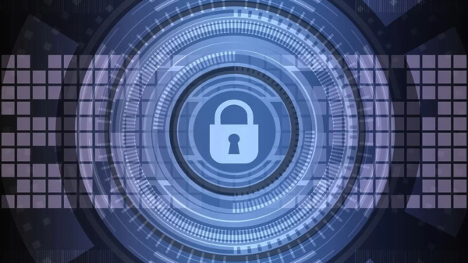We received many questions from our readers about VPNs over the past months, so we decided to answer the most common ones. We also checked Reddit and Quora to see what other things people want to know about VPNs.
So let’s start with the first one:
Table of Contents
1. How Does a VPN Hide Your IP Address?
Many online articles and ads say a VPN will “hide” your IP address, but what exactly does that mean?
First – here’s an overview of how the process works:
- You use a VPN app to connect to a VPN server.
- The server and app establish a secure connection between them.
- From then on, when you visit a website, your connection requests to it will go through the VPN server. Normally, they’d only go through your ISP network.
- Because your connections now work like that, any website you visit will only see the VPN server’s IP address. So your real IP address is “hidden.”
Feeling confused? No problem. Here’s a very basic example: let’s say you use a VPN server to visit Facebook. Here’s how the connection will look like:
Your Device -> ISP Network ->VPN Server -> Facebook
See how the VPN server acts as a middleman? Because of that, Facebook will see the connection requests coming from the server, not your device. So, the site will only see the server’s IP address.
2. How Much Does a VPN Cost?
Many people seem to think VPNs are very expensive. While it is true, you might find VPNs that cost around $9.99 per month (so over $100 per year) or more, there are plenty of services that cost less than that.
As far as we can tell, a VPN will usually cost around $5 per month on average (so $60 per year). But there are also VPNs that cost as little as $1.94 or $1.50 per month.
3. Can a VPN Prevent Malware Infections?
Yes and no.
Yes, a VPN can offer indirect protection from malware by blocking your connections to malicious or phishing sites. Basically, some services have firewall-like features that blacklist shady domains. CyberSec from NordVPN is a good example.
No, a VPN can’t protect your device from direct infections. It’s not programmed to work that way. The only way to stay safe is to use a quality antivirus program – like Malwarebytes or ESET.
4. Can Your ISP See You’re Using a VPN?
Yes, they can.
Here’s the thing – when you use a VPN, you use your ISP’s network to connect to its servers. Your connection to the VPN server doesn’t bypass your ISP. If it would, that would mean the VPN could offer you Internet access, and it can’t do that.
Don’t worry, though – your ISP can only see you’re using a VPN. They can’t see what data you share with it. Here’s a list of the things they see:
- The VPN server’s IP address.
- The connection timestamp (when you connected to the server and disconnected from it).
- How much data you exchange with the server.
- What port your connection uses.
5. Does a VPN Keep You Safe from Cookies?
Not exactly. VPNs can’t protect you from tracking cookies. They are text files that end up on your device when you visit a website. There’s no way for a VPN to intercept them and store them on its servers.
However, VPNs could offer protection against a very special kind of cookie – ISP supercookies.
Wait what? Supercookies? What are those? And what does your ISP have to do with them?
Well, supercookies are a way for your ISP to track your online browsing more in-depth. They contain UIDH (Unique Identifier Headers) which identify your devices on your ISP’s network and track what you browse online with them.
And here’s the kicker – you can’t get rid of supercookies by clearing the cookies in your browser. Your ISP inserts them into your data packets when you go online, and then stores them on their servers.
Creepy stuff, right?
Now, it’s true that ISPs normally have to ask for customers’ consent to use supercookies. If they don’t, they can end up getting a huge fine like Verizon did.
Don’t expect your ISP to ask for consent directly, though. You probably already gave it when you agreed to their ToS and signed the contract.
And that’s where a VPN comes into play. Instead of arguing with your ISP about this, just use a VPN to encrypt all your traffic. Since your ISP can’t spy on it (AKA analyze and intercept your data packets), they shouldn’t be able to insert supercookies into it anymore.

6. Can a VPN Increase Your Speeds?
Usually, no. On the contrary, VPNs usually lower your speeds – especially if you use a server that’s very far away. It takes longer for data packets to travel between the app and server that way.
Also, the encryption-decryption process takes its toll on your online speeds. If you have an older CPU, the slowdown might be pretty noticeable even.
However, there are two scenarios when a VPN could potentially improve your speeds (not by a lot, though):
- When your ISP throttles your bandwidth. Basically, that’s when they lower your speeds because you use too much data on a specific web service (like Netflix). Well, with a VPN, they can’t see what sites or web apps you binge, so they can’t selectively throttle your speeds for them.
- When your ISP uses a poor routing path for your traffic. There’s a chance (albeit a small one) they might use a more efficient path when you connect to different VPN locations.
Have Other VPN-Related Questions Do You Want Answered?
Leave them in the comments or send them directly to us through email or on social media. We’ll do our best to answer them as soon as possible.
Also, if you have more info to add to our answers, please do.
Suggested read: 7 Best Free VPNs in India

